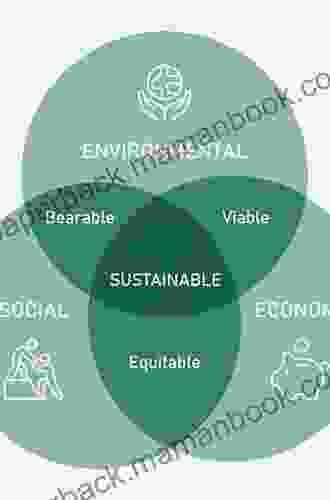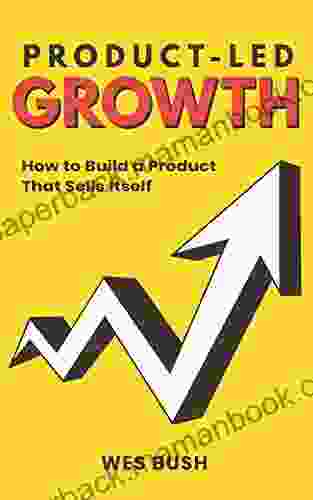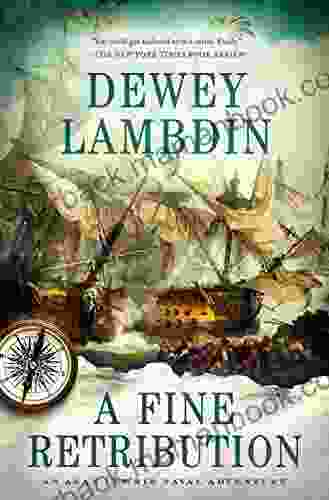Beyond Growth: The Economics of Sustainable Development

4.2 out of 5
| Language | : | English |
| File size | : | 3165 KB |
| Text-to-Speech | : | Enabled |
| Screen Reader | : | Supported |
| Enhanced typesetting | : | Enabled |
| Word Wise | : | Enabled |
| Print length | : | 266 pages |
The conventional economic model, based on continuous economic growth, has led to unprecedented material prosperity for many but has also resulted in severe environmental degradation, social inequality, and financial instability. The concept of 'Beyond Growth' offers a new economic paradigm, advocating for a transition to a sustainable, equitable, and well-being-oriented society.
Limitations of Growth-Oriented Economics
The growth-oriented economic model assumes that endless economic growth is both possible and desirable. However, this assumption is increasingly challenged by the ecological limits of the planet and the social and economic costs of growth.
- Environmental degradation: Economic growth has been a major driver of environmental degradation, including climate change, pollution, and deforestation. The continued pursuit of growth will only exacerbate these problems.
- Social inequality: Growth-oriented economies tend to exacerbate social inequality, as the benefits of growth are often concentrated in the hands of a few. This can lead to social unrest and political instability.
- Financial instability: The pursuit of growth often leads to financial instability, as governments and corporations take on excessive debt in order to stimulate growth. This can lead to financial crises and economic downturns.
The Need for a Transformative Shift
The limitations of growth-oriented economics make it clear that we need a transformative shift to a new economic paradigm. Beyond Growth economics offers a vision of a sustainable, equitable, and well-being-oriented society.
- Sustainability: Beyond Growth economics seeks to create an economy that operates within the ecological limits of the planet. This means reducing our reliance on fossil fuels, transitioning to renewable energy, and protecting biodiversity.
- Equity: Beyond Growth economics aims to create a more equitable society, where the benefits of economic growth are shared more fairly. This means reducing income inequality, providing access to essential services, and empowering marginalized communities.
- Well-being: Beyond Growth economics recognizes that economic growth is not the only measure of progress. It seeks to create an economy that supports the well-being of all people, including health, education, and happiness.
Key Principles of Beyond Growth Economics
Beyond Growth economics is based on several key principles:
- Ecological sustainability: The economy must operate within the ecological limits of the planet.
- Social equity: The benefits of economic growth must be shared more fairly.
- Well-being orientation: Economic progress should be measured by the well-being of all people, not just by economic growth.
- Degrowth: In some cases, it may be necessary to reduce economic growth in order to achieve sustainability and well-being.
- Circular economy: The economy should be designed to minimize waste and maximize resource efficiency.
- Doughnut economics: The economy should operate within a 'doughnut' of ecological and social boundaries.
Challenges and Opportunities
Implementing Beyond Growth policies presents a number of challenges, including:
- Political resistance: Many vested interests benefit from the current growth-oriented economic system and will resist change.
- Economic disruption: Transitioning to a Beyond Growth economy may require significant economic disruption, including job losses and reduced profits.
- Technological challenges: Developing and implementing sustainable technologies may be costly and time-consuming.
However, there are also a number of opportunities associated with Beyond Growth:
- Environmental benefits: Transitioning to a Beyond Growth economy would reduce environmental degradation and improve public health.
- Social benefits: A more equitable and well-being-oriented economy would reduce poverty and improve social cohesion.
- Economic benefits: In the long term, a Beyond Growth economy could be more sustainable and resilient than a growth-oriented economy.
Examples of Beyond Growth Initiatives
There are a number of examples of Beyond Growth initiatives around the world, including:
- The Green New Deal: A proposed set of policies in the United States that would invest in renewable energy, create jobs, and reduce emissions.
- The Doughnut Economics Action Lab: A global network of organizations working to implement Doughnut Economics principles.
- The Post-Growth Institute: A non-profit organization that promotes the transition to a post-growth economy.
- The degrowth movement: A movement that advocates for a reduction in economic growth.
The Beyond Growth movement offers a vision of a sustainable, equitable, and well-being-oriented society. While there are challenges to implementing Beyond Growth policies, there are also a number of opportunities. By transitioning to a Beyond Growth economy, we can create a better future for all.
4.2 out of 5
| Language | : | English |
| File size | : | 3165 KB |
| Text-to-Speech | : | Enabled |
| Screen Reader | : | Supported |
| Enhanced typesetting | : | Enabled |
| Word Wise | : | Enabled |
| Print length | : | 266 pages |
Do you want to contribute by writing guest posts on this blog?
Please contact us and send us a resume of previous articles that you have written.
 Top Book
Top Book Novel
Novel Fiction
Fiction Nonfiction
Nonfiction Literature
Literature Paperback
Paperback Hardcover
Hardcover E-book
E-book Audiobook
Audiobook Bestseller
Bestseller Classic
Classic Mystery
Mystery Thriller
Thriller Romance
Romance Fantasy
Fantasy Science Fiction
Science Fiction Biography
Biography Memoir
Memoir Autobiography
Autobiography Poetry
Poetry Drama
Drama Historical Fiction
Historical Fiction Self-help
Self-help Young Adult
Young Adult Childrens Books
Childrens Books Graphic Novel
Graphic Novel Anthology
Anthology Series
Series Encyclopedia
Encyclopedia Reference
Reference Guidebook
Guidebook Textbook
Textbook Workbook
Workbook Journal
Journal Diary
Diary Manuscript
Manuscript Folio
Folio Pulp Fiction
Pulp Fiction Short Stories
Short Stories Fairy Tales
Fairy Tales Fables
Fables Mythology
Mythology Philosophy
Philosophy Religion
Religion Spirituality
Spirituality Essays
Essays Critique
Critique Commentary
Commentary Glossary
Glossary Bibliography
Bibliography Index
Index Table of Contents
Table of Contents Preface
Preface Introduction
Introduction Foreword
Foreword Afterword
Afterword Appendices
Appendices Annotations
Annotations Footnotes
Footnotes Epilogue
Epilogue Prologue
Prologue Arx Reads
Arx Reads William Havelock
William Havelock Thomas W Phelan
Thomas W Phelan Dana Thomas
Dana Thomas Larry Hama
Larry Hama Harriet Caves
Harriet Caves Cresson H Kearny
Cresson H Kearny Marsha Rice
Marsha Rice John Scotcher
John Scotcher Kim Tolley
Kim Tolley John Scalzi
John Scalzi Lia Hunt
Lia Hunt Matti Charlton
Matti Charlton Ellis Morgan
Ellis Morgan Nicole Saginor
Nicole Saginor Julia Kelly
Julia Kelly Sara Rosett
Sara Rosett Daniel Immerwahr
Daniel Immerwahr Michael Mackison
Michael Mackison Dale A Olsen
Dale A Olsen
Light bulbAdvertise smarter! Our strategic ad space ensures maximum exposure. Reserve your spot today!

 Anthony BurgessDelve into the Enchanting Realm of Fuzzy Nation by John Scalzi: A Long Tail...
Anthony BurgessDelve into the Enchanting Realm of Fuzzy Nation by John Scalzi: A Long Tail...
 Italo CalvinoGirl On Da Block: The Story of Renita Burgess, Advocate for Youth Empowerment
Italo CalvinoGirl On Da Block: The Story of Renita Burgess, Advocate for Youth Empowerment Wayne CarterFollow ·2.5k
Wayne CarterFollow ·2.5k Guillermo BlairFollow ·11.8k
Guillermo BlairFollow ·11.8k Dalton FosterFollow ·4.4k
Dalton FosterFollow ·4.4k Doug PriceFollow ·17.8k
Doug PriceFollow ·17.8k Ira CoxFollow ·18.7k
Ira CoxFollow ·18.7k Dominic SimmonsFollow ·2.5k
Dominic SimmonsFollow ·2.5k Hassan CoxFollow ·12.6k
Hassan CoxFollow ·12.6k Jan MitchellFollow ·2.7k
Jan MitchellFollow ·2.7k

 Jeremy Mitchell
Jeremy MitchellPlay We Now On Christmas Violin Christmas: A Heartfelt...
Play We Now On...

 Terry Bell
Terry BellTales from the Road: Confessions of an Atlanta Uber...
In the vibrant...

 Ervin Bell
Ervin BellThe French Admiral: A Gripping Naval Adventure with Alan...
In the vast expanse of...

 Henry David Thoreau
Henry David ThoreauCrochet Cozy Afghan Patterns: Crochet Weekend Afghan...
to Crochet...

 Orson Scott Card
Orson Scott CardAn Archaeological View Of The Industrialization Of North...
The industrialization of North America was a...

 Josh Carter
Josh CarterClipboard Christmas Skits by Tom Spence: A Festive...
A Christmas...
4.2 out of 5
| Language | : | English |
| File size | : | 3165 KB |
| Text-to-Speech | : | Enabled |
| Screen Reader | : | Supported |
| Enhanced typesetting | : | Enabled |
| Word Wise | : | Enabled |
| Print length | : | 266 pages |








